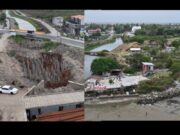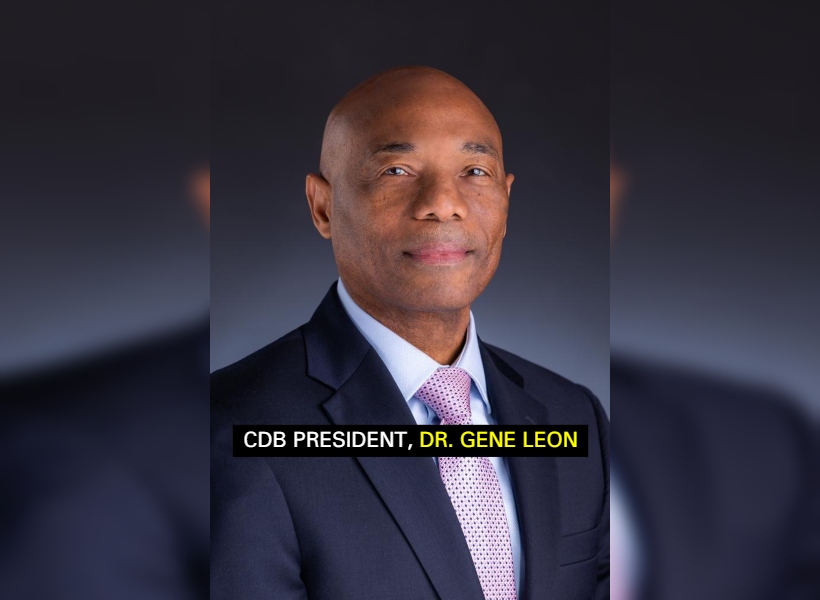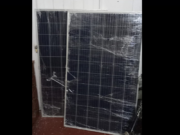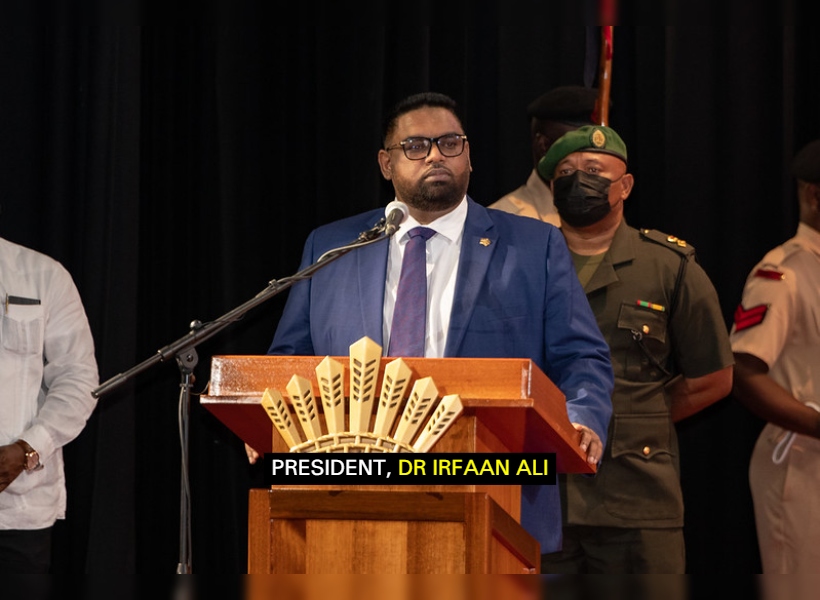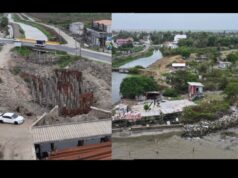Guyana’s President, Dr. Irfaan Ali is advocating for the dismantling of barriers to trade in agricultural commodities. He said this key to enhancing food security within the region. He made this observation during remarks at the CARICOM Regional Food Systems Dialogue.
He told participants that even before the outbreak of the pandemic, the Caribbean Community (CARICOM) had crafted The Regional Food and Nutrition Security Policy in order, among other things, to ensure “stable and sustainable food supplies at all times.”
He noted that with the region’s high food import bill estimated at more than US$4B per annum, the Caribbean’s high dependence on food imports leaves it vulnerable to external shocks caused by sudden spikes in food commodity prices.
“The Caribbean must aim at becoming more food secure. This exercise must be sustained and must involve increased production of foods consumed within the Region. But it must also entail increased intra-regional trade in agricultural commodities. The dismantling of barriers to the trade in agricultural commodities will enhance regional food security,” the Head of State noted.
He added: “If the Region is to become more food secure, it has to begin to source more of its food needs from within the Caribbean, and this will require the removal of unnecessary non-tariff barriers to intra-regional trade. The Region is not short of solutions for improving food security. These solutions are to be found in proposals, reports, studies, and regional strategies.”
The Inter-American Institute for Cooperation in Agriculture (IICA), for example, has said that if the Caribbean is to achieve the goal of zero-hunger, the Region’s food supply chain has to be redesigned to include food security as well as water and energy, given that agriculture is highly dependent on both water and energy.
IICA also pointed to the need for a shift to greater agricultural value-added production.
“The (Bharrat) Jagdeo Initiative had identified ten key binding constraints to the development of Regional agriculture. The solution exists. What is required is the political will and the financing to give effect to what needs to be done to develop the Region’s food systems. I believe that the time has come, and the time is ripe for us to do so,” the President said.
